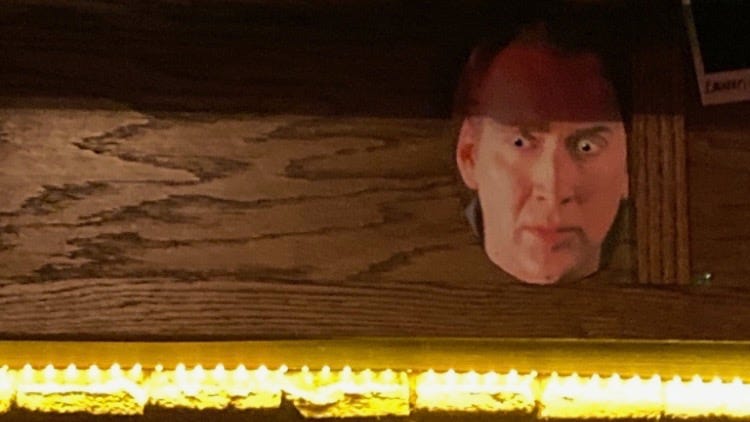“Writing is routinely described as ‘creative’—this has never struck me as the correct word,” so writes Zadie Smith in her essay collection, Intimations. “Planting tulips is creative. To plant a bulb (I imagine, I’ve never done it) is to participate in some small way in the cyclic miracle of creation. Writing is control.”
I first read Intimations when it came out September 2020, yet rereading it after the last election, I found her thinking on the world to be even more prescient. I’ve always wondered if and how writing can effect change, and if those changes inspired by writing are “enough,” if sitting down and writing something political is inherently an act of politics. Writing, I think, does not stand on its own. We have lives off the page, and change requires action off the page too.

I’ve found writing to be quite impossible the last few months. I don’t know the last time I’ve been able to focus on reading a book. Yet, too, I think there’s something important to that “cyclic miracle of creation,” to insisting upon beauty or rage or the extraordinary stuff of your life, the things that make us human, the dirt on the tulip bulbs and not the glossy, gnarly, AI petals.
Zadie Smith also says that writing “is something to do.” When I feel overwhelmed, when my brain is too foggy to read, or when I find myself to be wildly apathetic about my own fiction, I try to remember, this is something to do, this is moving against resistance. Then let myself follow the chaos and rage and disorder of it all.
I read a version of this at MWPA’s Come As You Are reading last week in response to the prompt, “How do you keep writing, or keep going?” because I’ve been finding it incredibly hard to care about writing (even reading this last week, I felt like, who the hell cares—I barely do). Does writing fiction about gays in bad relationships constitute an act of defiance? No, I don’t think so. I find it impossible to read these days—I can’t make myself care about any of it while our administration has the most cynical and cruel outlook on human rights at home and abroad, law and governance, climate, science, free speech, and on and on.
I don’t have any answers, but what I do know is that even if writing doesn’t “do” anything else, or translate into an effective lever for change or resistance, it is something that I still need—it’s still “something to do”—and that does continue to matter. Maybe all the lofty imperatives I feel can get assigned to the question “why write” look particularly empty, but not writing because of that also feels wrong. I do think that personal relationship still matters, and maybe making other people feel something matters in a smaller, more individual way too.
I’m still barely writing any new fiction, but I am focusing on the writing I can do, mainly editing. I’m also thinking a lot about the different kinds of projects that I want to take on, whether creatively or in my freelance work, and where there’s room for that to align with what matters to me right now.
And then there’s everything out of here and offline too.
Reference Section
Patrick Nathan very elegantly sums up what it is to write into the face of bullshit in this recent post on his Substack:
These are sensitive times, which is probably why this sudden shift in values felt like such a punch in the chest. What was supposed to bring the truth, or a kind of recognition, had become another form of language meant to abstract — a received gibberish of clichés that doesn’t relate so much as alienate. It reminded me of the previous decade, when queer books were reduced to an algebra of representation, but only if their characters were transgression free; or when novelists like Rachel Cusk gave interview after interview about the “inauthenticity” of making up characters or plots. These are only two examples of many, but both — to take them in good faith — make the claim that writing outside one’s experience is somehow fraudulent; both — taken in bad faith — are a solipsistic fetishization of powerlessness. How can there be political agency when we can’t even assert our books into the world?
MWPA partnered with a number of local, Portland organizations at the reading. Learn more about ACLU Maine, Brazen Bandits, Equality Maine, MaineTransNet, and SAFE Maine.




Thank you so much for this. I’ve been struggling to write so much the last couple months. I’ve been working through the first draft of a new project at The Novelry and when I raised this exact question - How? Why? - they refused to engage with it.